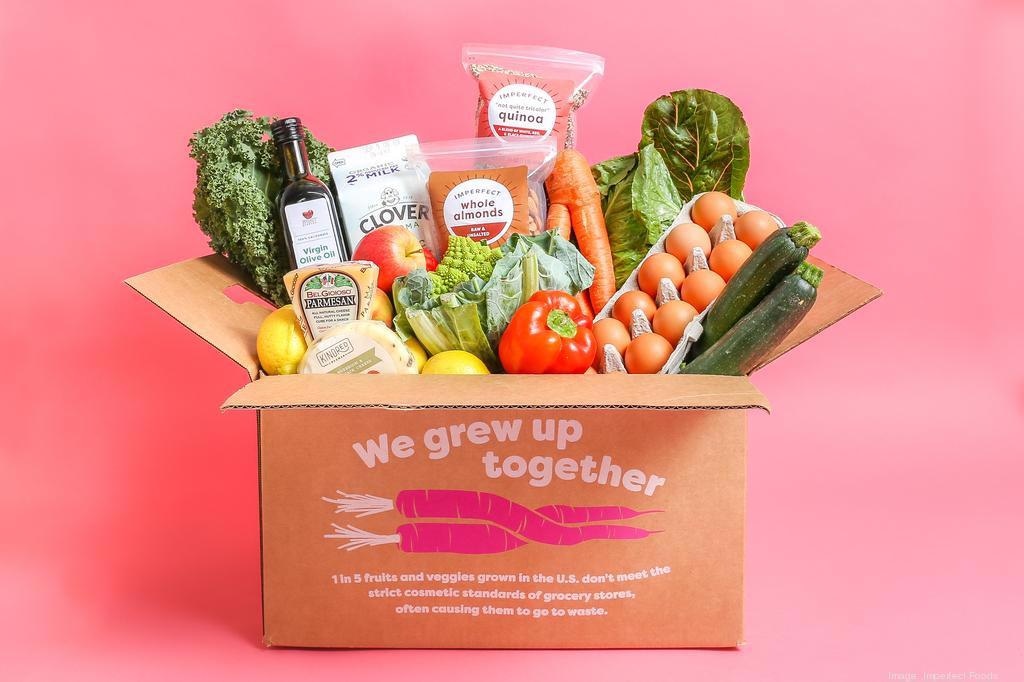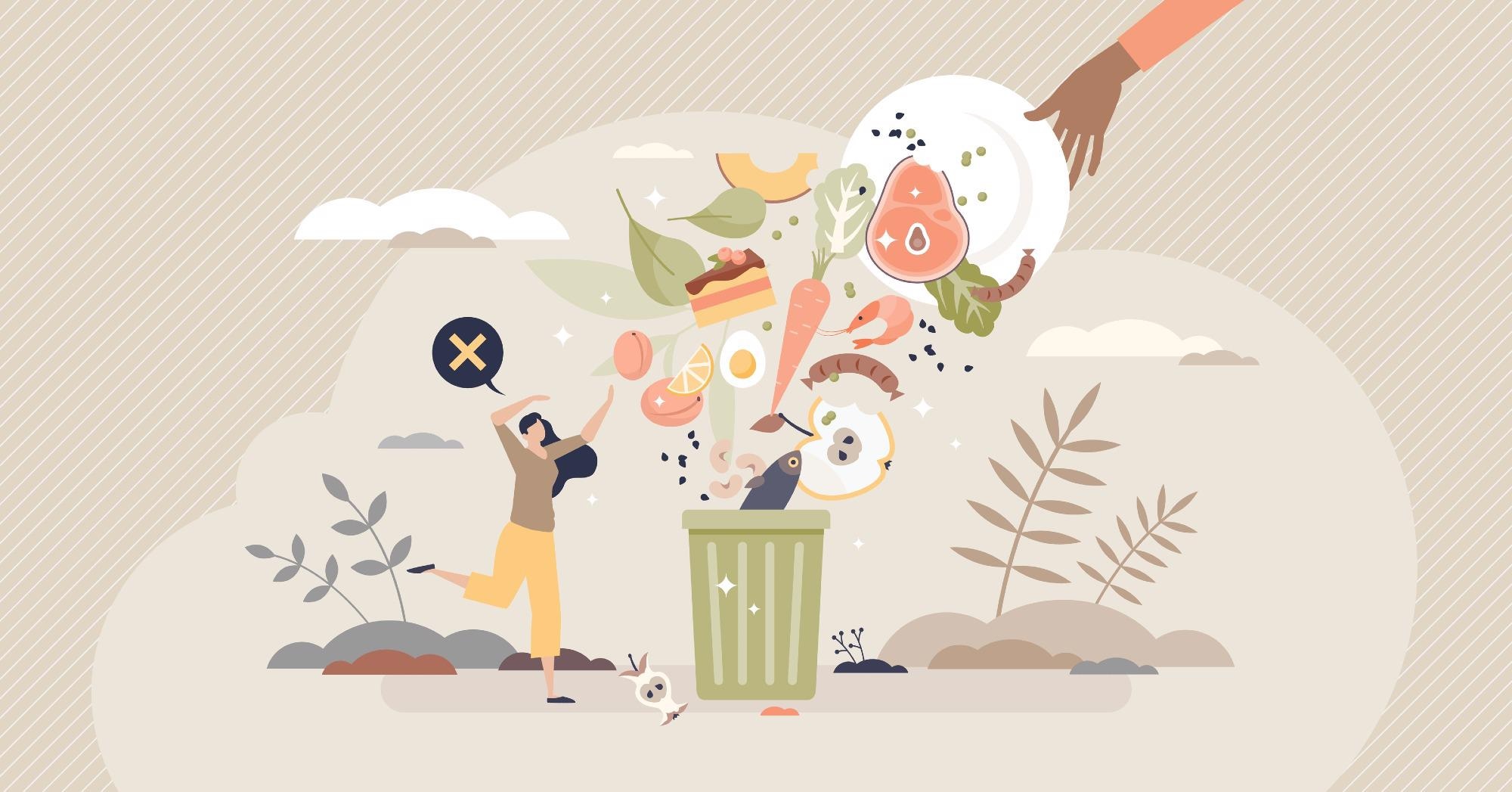Hey! I'm Maddy Rotman, the Head of Sustainability at Imperfect Foods. My role focuses on reducing waste across Imperfect Foods' operational practices and the food supply system at large.
We started Imperfect Foods to save ugly produce. It felt wrong, and even a little bit silly, that fruits and veggies were getting tossed aside because they looked a little different. It also felt wrong because wasting less food is the number one way to reduce greenhouse gas emissions—and that's a climate problem we can do something about.
At Imperfect Foods, we deliver everything from produce to pantry staples, dairy, and meat directly to your front door. Our groceries, even those that are imperfect, are always delicious and fresh—and they are a fair value for farmers, the environment, and you.
With increased attention surrounding global health, including World Health Day's 2022 theme 'Our Planet, Our Health,' what impact is food waste having on our planet?
One-third of the food grown in the U.S. doesn't get eaten. We know that growing food is extremely resource-intensive, and when we let this food go to waste, we waste all of the resources (i.e., land, water, soil, etc.) that go into producing it. Furthermore, this food waste is responsible for 8% of global greenhouse gas emissions.
As we know from Project Drawdown, eliminating food waste is the number one way to eliminate greenhouse gas emissions, and it's an impactful climate solution that everyone can easily participate in.
So far, you have saved over 167 million lbs of food. How have you done this, and what does this mean for sustainability worldwide?
Our food system makes it too easy to waste perfectly good food. Not only is wasting food costly to the environment, but it's also costly for food suppliers whose work goes unpaid, and it's costly for people like you. Imperfect Foods works directly with over 1,000 food producers and farmers to rescue food. We purchase surplus, cosmetically funky, or blemished products so that those products do not end up rotting in landfills, composted, or even left in the field.
You currently offer a grocery delivery service. How does this work, and what are the advantages for consumers in using services like Imperfect Foods not only for ease of service but for planetary health also?
Imperfect Foods is a full-service online grocer with a mission to reduce food waste. Each week, customers can log onto our site or app and grocery shop from a curated selection of products. We deliver everything from fresh fruits and vegetables to pantry staples, snacks, dairy, meat, and alternatives directly to customers' doors.
Our Imperfect delivery drivers visit each neighborhood one day per week, keeping our greenhouse gas emissions to a minimum. This unique delivery model enabled Imperfect to avoid an additional 13,986 tCO2e emissions in 2021. And each week, when we drop off your order, we're able to take back our packaging (no more gel pack guilt!) to reuse and recycle the materials. Our customers have saved over 3.5 million lbs of packaging this past year alone!

Image Credit: Imperfect Foods
What makes Imperfect Foods food imperfect?
Imperfect foods are items that don't meet the strict cosmetic standards of grocery stores. This can include small quirks in appearance—like shape, size, or color—that have no impact on flavor or nutrition. In fact, the produce found in Imperfect Foods orders is often fresher and tastier than what you find at your local grocery store.
Beyond produce, perfectly good grocery items often go to waste for similarly illogical reasons. Grocers won't purchase or stock goods that are close to their expiration dates or going through packaging changes, regardless of quality. By sourcing these cosmetically imperfect yet delicious, fresh foods, we can keep the tiny apples and the broken pretzels from going to waste—and it all adds up.
You often post recipe videos detailing how people can make the most of their leftover foods on your Instagram. How important is this in tackling food waste and encouraging people to do more with their food?
People want to prevent food waste, and 40% of the food wasted in the U.S. is wasted at home. But our current food system makes less wasteful habits and behaviors really challenging. So Imperfect also focuses on highlighting easy and accessible ways to save food at home—these are often tips we learn from our customers themselves and their creativity in the kitchen. In addition, when you receive your first order, we include a storage guide that helps you know where to keep items in your fridge or your pantry. In addition to knowing how to store products in the right place, we can all use creative support in menu planning and cooking.
Our blog, thewholecarrot.com, includes lots of fun recipes and tricks to use up produce hiding in your fridge corners, as well as ways to incorporate parts of produce you might typically toss (my favorite tip: I never peel potatoes for any recipe, as the skin is delicious and nutritious and leaving it on saves time—and waste!).
You recently conducted a study surrounding food waste. Can you tell us more about this study and what you discovered?
We surveyed a nationally representative group of over 1000 sustainability-minded individuals and uncovered major feelings of guilt, shame, and pressure to be perfect when it comes to wasting food.
In fact:
- 74% of sustainability-minded people reported having felt guilty throwing food away; and 35% of people reach a breaking point when there's too much pressure to be perfect.
If we are going to do better and waste less food, shame isn't going to help us get there. Wasting less food requires making new habits and learning new skills. Learning anything is messy, and the reality is that progress is always imperfect. We can't let the shame of imperfection and the pressure to be perfect keep us from trying new things, like building waste prevention habits. We know that small actions can add up in a big way for the number one climate solution, so we're all about being perfectly imperfect in the fight to end food waste.

Image Credit: VectorMine/Shutterstock.com
More than 900 million tons of food is wasted each year globally despite continued efforts. What more should companies, organizations, and policymakers be doing to help address this devastating statistic and improve global food systems?
We've found it's not the food that's imperfect—it's the global food system that makes it too easy to waste perfectly good food. We support the work that ReFED, Harvard Food Law and Policy Clinic, NRDC, and WWF just put forward in the Opportunities to Reduce Food Waste in the 2023 Farm Bill, including date labeling standardization and strengthening the Bill Emerson Good Samaritan Food Donation Act, which is the law that enables organizations to donate food.
With the Farm Bill informing agricultural and food policy within the American food system, these recommendations—and others like it—are imperative to reduce food waste and increase surplus food rescue on a larger scale.
A sustainable food system is one in which we respect the resources it takes to grow our food and ensure nothing is wasted. Anyone interested can support these efforts by contacting their local representatives and leaving them a message asking for these policies to be supported.
Are you hopeful that with continued awareness surrounding food waste, we will see fewer people wasting their food? What benefits would this have for the planet?
Wasting less food is the most effective way to reduce greenhouse gas emissions—it's a solution to the climate crisis that everyone can do something about. To put things in perspective, 8% of global greenhouse gas emissions come from wasted food. That's more than the entire airline industry for size. Project Drawdown, an organization focused on climate solutions, has put the fight against food waste as the greatest priority for us to act on.
We're continually growing the movement and bringing attention to the importance of reducing food waste for our planet, our farmers, and the health of our food system. And we're proud to say that Imperfect customers have saved over 177 million pounds of food, and we've got a lot more food to save—one broken pretzel and one tiny apple at a time.
What is next for Imperfect Foods? Are you involved in any exciting upcoming projects?
This past year, Imperfect Foods received a B Corp certification, demonstrating the highest social and environmental performance standard for a business.
Imperfect Foods is committed to being a net-zero carbon operation. Over the next eight years, we will be working to reduce the impact of our business operations through zero waste facilities, using electric vehicles for delivery, and sourcing renewable energy.
Where can readers find more information?
www.imperfectfoods.com
About Maddy Rotman
Maddy is the Head of Sustainability at Imperfect Foods, the online grocer on a mission to eliminate food waste and build a better food system for everyone. With 10+ years of experience in the grocery sector, Madeline has been a champion of food access and the need to build more equitable and regenerative food systems. In this role, she is helping the company reduce waste even further across their operational practices and food supply system at large.
Maddy was recently awarded the Verdical Group's 2021 Trailblazer Award, which recognizes climate leaders who are building a net-zero future.